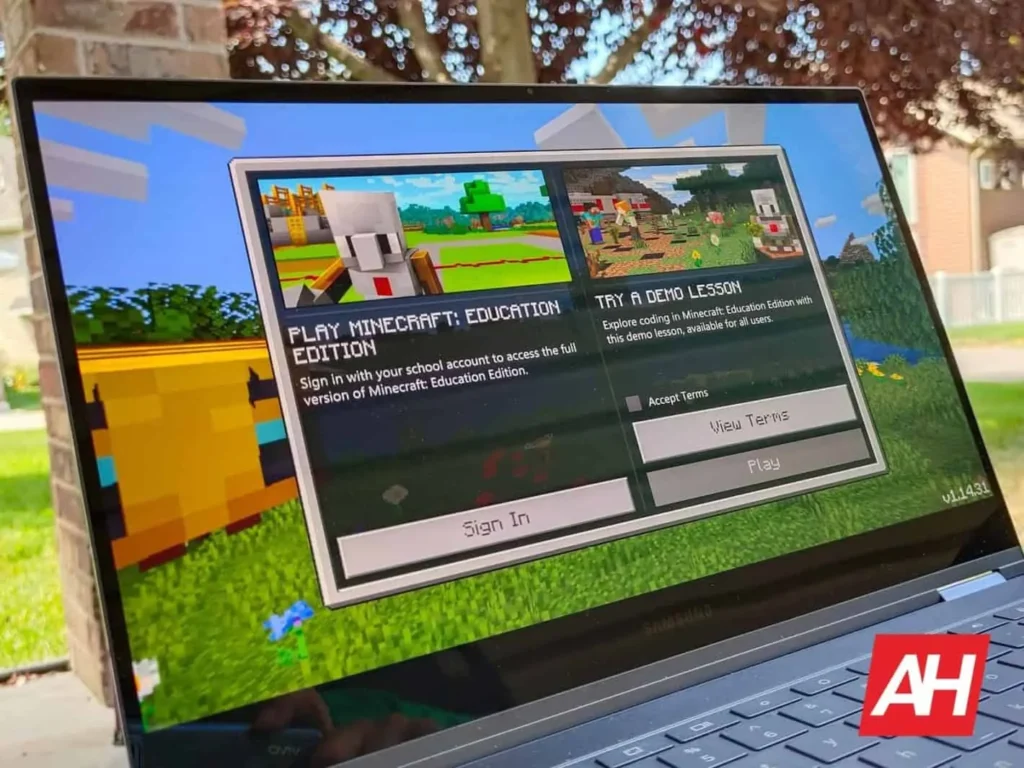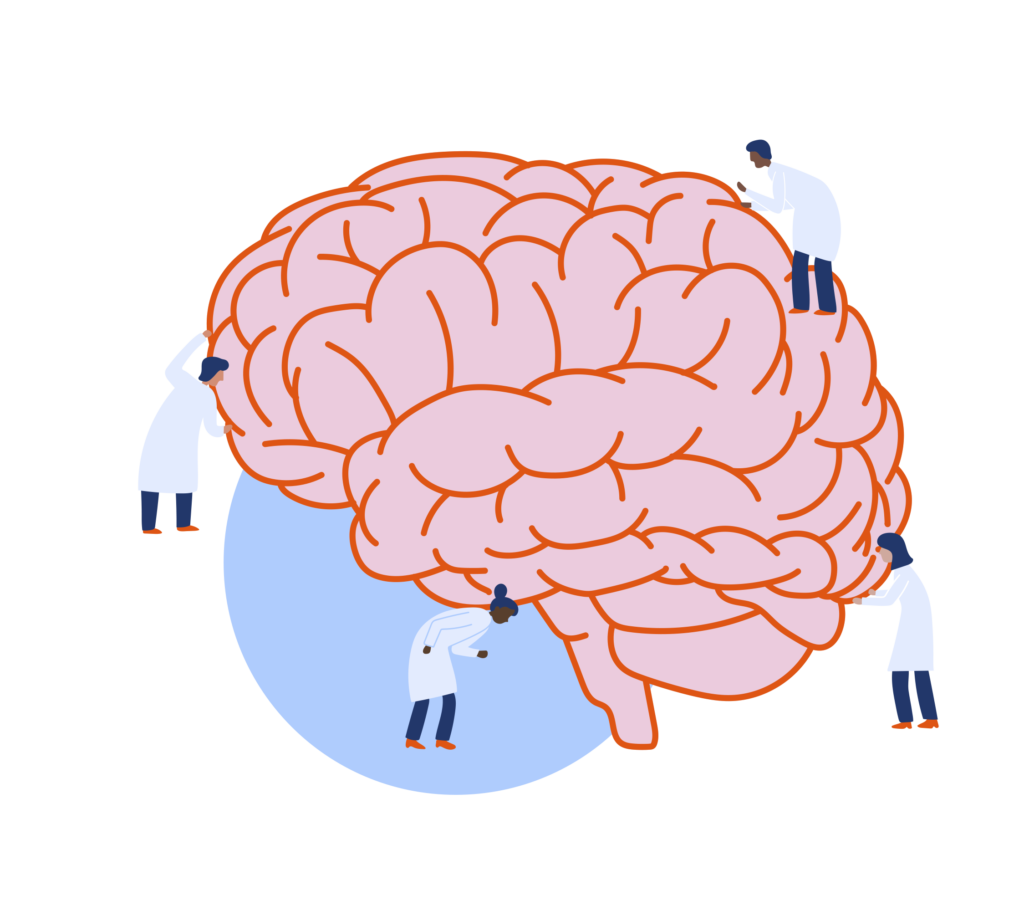MINECRAFT
Learn and Craft in the Digital Realm with Minecraft education
iTrainKids: Empowering Young Minds with Minecraft Education for Future Innovators



Critical
Thinking
In Minecraft, kids encounter challenges that require problem-solving skills. Figuring out how to build structures, navigate obstacles, and plan resource use enhances their critical thinking abilities.
Engaging Education:
Learning through Minecraft is exciting and motivating, covering subjects like math, history, and more. This unconventional approach keeps kids enthusiastic about gaining knowledge.
Creative Exploration:
Minecraft unleashes children's creativity, allowing them to build, design, and envision their ideas in a virtual world. This fosters imaginative thinking and artistic expression.
Collaborative Learning:
Through multiplayer modes, Minecraft encourages teamwork and communication. Kids can collaborate on projects, share insights, and understand the value of effective teamwork.

Get to know
About Minecraft
Minecraft Education redefines learning by harnessing the power of the beloved game, Minecraft. It offers an immersive platform where students actively engage with educational content, fostering creativity, critical thinking, collaboration, and exploration. From building structures to historical simulations, Minecraft Education revolutionizes education, making it more interactive, captivating, and effective than ever before.
Why Minecraft?
The Future of
Learning Minecraft
Minecraft Education provides a foundation of skills and ways of thinking that can be applied in countless ways. The true value lies not just in a specific career path, but in the development of well-rounded individuals who are curious, adaptable, and equipped to face the challenges of the future.
Environmental Advocates:
Minecraft’s focus on ecosystems and resource management could spark an interest in environmental sciences and sustainability. Your kids might pursue careers in environmental studies, conservation, or ecological research.
Nurturing Future Entrepreneurs:
Minecraft encourages creative entrepreneurship. Your kids could start their own businesses related to game streaming, content creation, virtual events, or even building and selling in-game creations.
Educators and Trainers:
Learning through Minecraft might inspire a passion for education. Your kids could become teachers, trainers, or educational content creators, leveraging digital tools to engage learners.

What Can Minecraft do to your Child
Brain
01.
Fostering Creativity:
Building in Minecraft stimulates imaginative thinking, boosting creativity and design skills.
02.
Enhancing Problem-Solving:
Navigating challenges in the game sharpens critical thinking and strategic planning abilities.
03.
Developing Spatial Skills:
Manipulating blocks in 3D space improves spatial awareness and coordination, benefiting cognitive functions
Course Outline
The Robotics Course is made of 3 Quarters, Each Quarter has 4 weeks.
Smart
0%
Thinker
Genius
Thinker 12 weeks
The thinker Quarter is a 12 weeks long package
Weeks 1: Introduction to Microbit
● Introduction to the microbit and its capabilities
● Understanding the basic functions and features of the microbit
● Simple activities and games to introduce the microbit to children
Weeks 2: Algorithms
● Introduction to algorithms and problem-solving
● Using microbit to create simple algorithms and solve problems
● Algorithm games and activities to reinforce understanding
Weeks 3: Decomposition
● Introduction to Decomposition
● Using microbit to break down complex problem into smaller
● Decomposition games and activities to reinforce understanding
Weeks 4: Sequencing
● Introduction to sequencing and instructions
● Using microbit to create sequences of light or sound
● Sequencing games and activities to reinforce understanding
Weeks 5: Pattern Recognition
● Introduction to Pattern Recognition
● Using microbit to make connections between similar problem
● Pattern Recognition games and activities to reinforce understanding
Weeks 6: Debugging
● Introduction to Debugging
● Hunt for a mistakes in a program and correct them
● Debugging games and activities to reinforce understanding
Weeks 7: Loops
● Introduction to loops
● Using microbit to create loops and repeat instructions
● Loop games and activities to reinforce understanding
Weeks 8: Conditional Statements
● Introduction to conditional statements and decision-making
● Using microbit to create conditional statements and make decisions
● Conditional statement games and activities to reinforce understanding
Weeks 9: Inputs and Outputs
● Introduction to inputs and outputs
● Using microbit to create interactive programs that respond to inputs
● Interactive games and activities to reinforce understanding
Weeks 10: Sensors
● Introduction to sensors and their uses
● Using microbit to create programs that respond to sensor inputs
● Sensor games and activities to reinforce understanding
Weeks 11: Robotics and Movement
● Introduction to robotics and movement
● Using microbit to program robots to move and perform simple tasks
● Robotics and movement games and activities to reinforce understanding
Weeks 12: Showcase & Presentation
● Children will work on a final project that incorporates all the skills and concepts learned throughout the course
● Children will showcase their projects and demonstrate their learning to their peers and families
Smart
0%
Thinker
Genius
Smart 24 Weeks
The Smart Quarter is 24 weeks long combined with Thinker
Weeks 1: Introduction to Microbit
● Introduction to the microbit and its capabilities
● Understanding the basic functions and features of the microbit
● Simple activities and games to introduce the microbit to children
Weeks 2: Algorithms
● Introduction to algorithms and problem-solving
● Using microbit to create simple algorithms and solve problems
● Algorithm games and activities to reinforce understanding
Weeks 3: Decomposition
● Introduction to Decomposition
● Using microbit to break down complex problem into smaller
● Decomposition games and activities to reinforce understanding
Weeks 4: Sequencing
● Introduction to sequencing and instructions
● Using microbit to create sequences of light or sound
● Sequencing games and activities to reinforce understanding
Weeks 5: Pattern Recognition
● Introduction to Pattern Recognition
● Using microbit to make connections between similar problem
● Pattern Recognition games and activities to reinforce understanding
Weeks 6: Debugging
● Introduction to Debugging
● Hunt for a mistakes in a program and correct them
● Debugging games and activities to reinforce understanding
Weeks 7: Loops
● Introduction to loops
● Using microbit to create loops and repeat instructions
● Loop games and activities to reinforce understanding
Weeks 8: Conditional Statements
● Introduction to conditional statements and decision-making
● Using microbit to create conditional statements and make decisions
● Conditional statement games and activities to reinforce understanding
Weeks 1: Introduction to Microbit
● Introduction to the microbit and its capabilities
● Understanding the basic functions and features of the microbit
● Simple activities and games to introduce the microbit to children
Weeks 2: Algorithms
● Introduction to algorithms and problem-solving
● Using microbit to create simple algorithms and solve problems
● Algorithm games and activities to reinforce understanding
Weeks 3: Decomposition
● Introduction to Decomposition
● Using microbit to break down complex problem into smaller
● Decomposition games and activities to reinforce understanding
Smart
0%
Thinker
Genius
Genius 36 weeks
The Genius Quarter is 36 weeks long combined with Thinker & Smart
Weeks 1: Introduction to Microbit
● Introduction to the microbit and its capabilities
● Understanding the basic functions and features of the microbit
● Simple activities and games to introduce the microbit to children
Weeks 2: Algorithms
● Introduction to algorithms and problem-solving
● Using microbit to create simple algorithms and solve problems
● Algorithm games and activities to reinforce understanding
Weeks 3: Decomposition
● Introduction to Decomposition
● Using microbit to break down complex problem into smaller
● Decomposition games and activities to reinforce understanding
Weeks 4: Sequencing
● Introduction to sequencing and instructions
● Using microbit to create sequences of light or sound
● Sequencing games and activities to reinforce understanding
Weeks 5: Pattern Recognition
● Introduction to Pattern Recognition
● Using microbit to make connections between similar problem
● Pattern Recognition games and activities to reinforce understanding
Weeks 6: Debugging
● Introduction to Debugging
● Hunt for a mistakes in a program and correct them
● Debugging games and activities to reinforce understanding
Weeks 7: Loops
● Introduction to loops
● Using microbit to create loops and repeat instructions
● Loop games and activities to reinforce understanding
Weeks 8: Conditional Statements
● Introduction to conditional statements and decision-making
● Using microbit to create conditional statements and make decisions
● Conditional statement games and activities to reinforce understanding
Weeks 1: Introduction to Microbit
● Introduction to the microbit and its capabilities
● Understanding the basic functions and features of the microbit
● Simple activities and games to introduce the microbit to children
Weeks 2: Algorithms
● Introduction to algorithms and problem-solving
● Using microbit to create simple algorithms and solve problems
● Algorithm games and activities to reinforce understanding
Weeks 3: Decomposition
● Introduction to Decomposition
● Using microbit to break down complex problem into smaller
● Decomposition games and activities to reinforce understanding
- Proven curriculum
- Seamless learning methods with social learning concepts
- Rewarding and hands-on learning experience
- Instil Project-based learning mindset
“The days of intimidating & confusing Educators are finally over!”

“Insurance used to scare me. But that all changed thanks to United! They make everything easy to understand and use!”
Diane Jones
Happy customers

“The best insurance company I’ve worked with! Not only is everything so simple, but they have the best rates in the industry.”
Carl Correa

“Talk about a cool Insruance company! Everything is online and if you do need to speak to someone for help, it’s like talking to a friend!”
Leonie Vega
Your life, Our answers
Explore our products to learn more about your insurance options and in addition receive a quote from us.
?
Lorem ipsum dolor sit amet, consectetur adipiscing elit. Ut elit tellus, luctus nec ullamcorper mattis, pulvinar dapibus leo.
Lorem ipsum dolor sit amet, consectetur adipiscing elit. Ut elit tellus, luctus nec ullamcorper mattis, pulvinar dapibus leo.
Lorem ipsum dolor sit amet, consectetur adipiscing elit. Ut elit tellus, luctus nec ullamcorper mattis, pulvinar dapibus leo.
Lorem ipsum dolor sit amet, consectetur adipiscing elit. Ut elit tellus, luctus nec ullamcorper mattis, pulvinar dapibus leo.
want to
talk with us?
Leave your details and one of our experts will contact you!